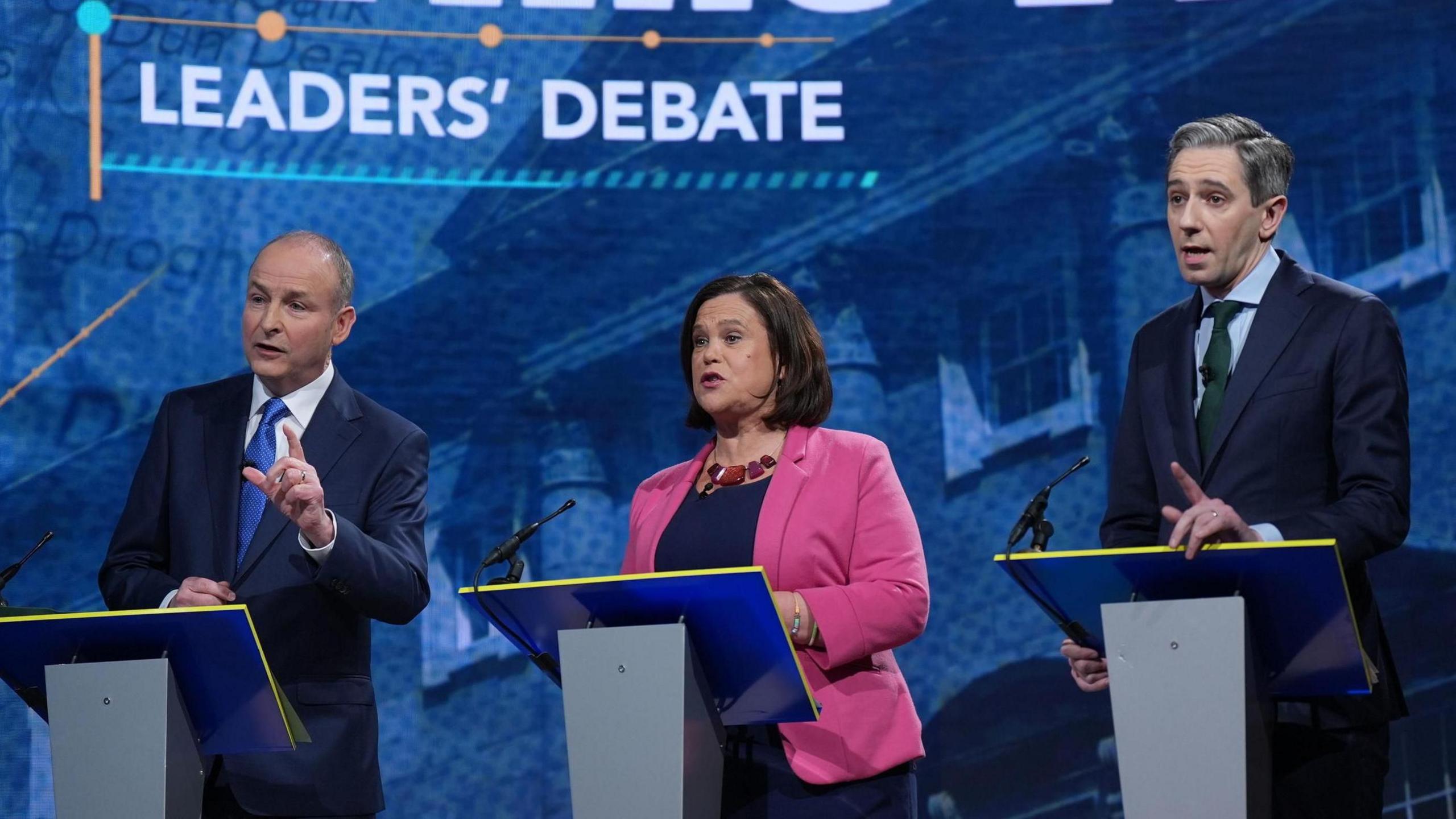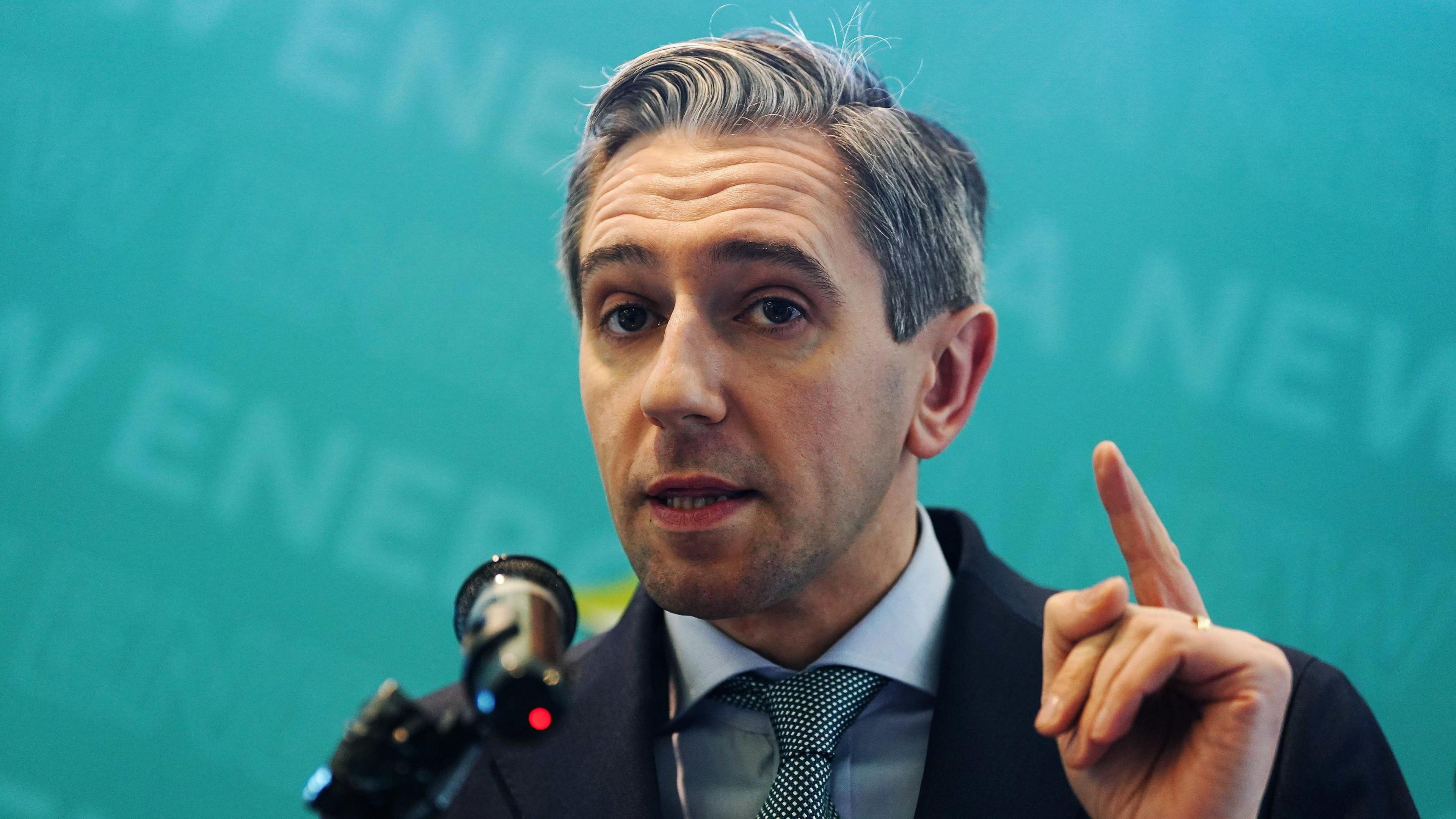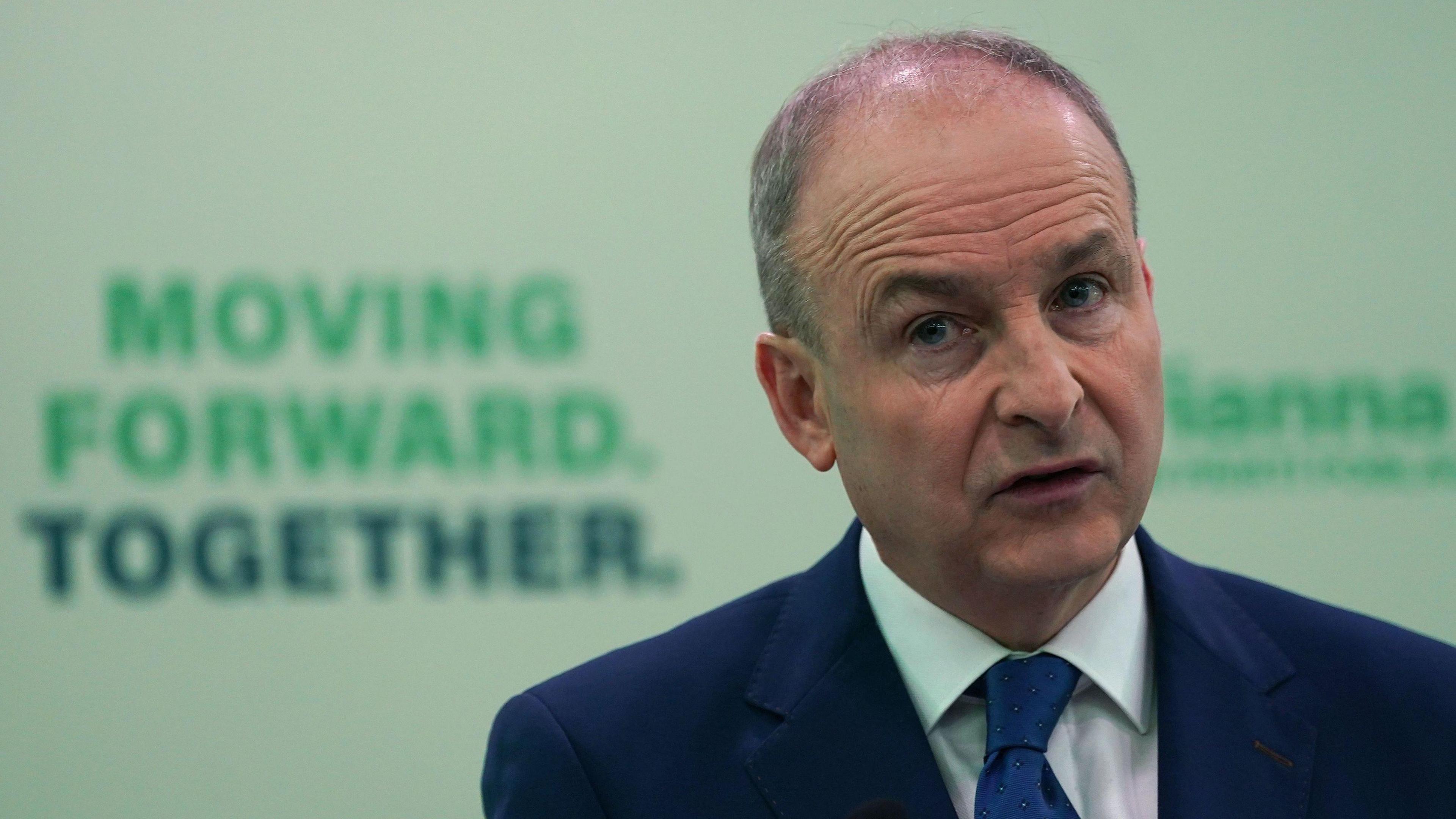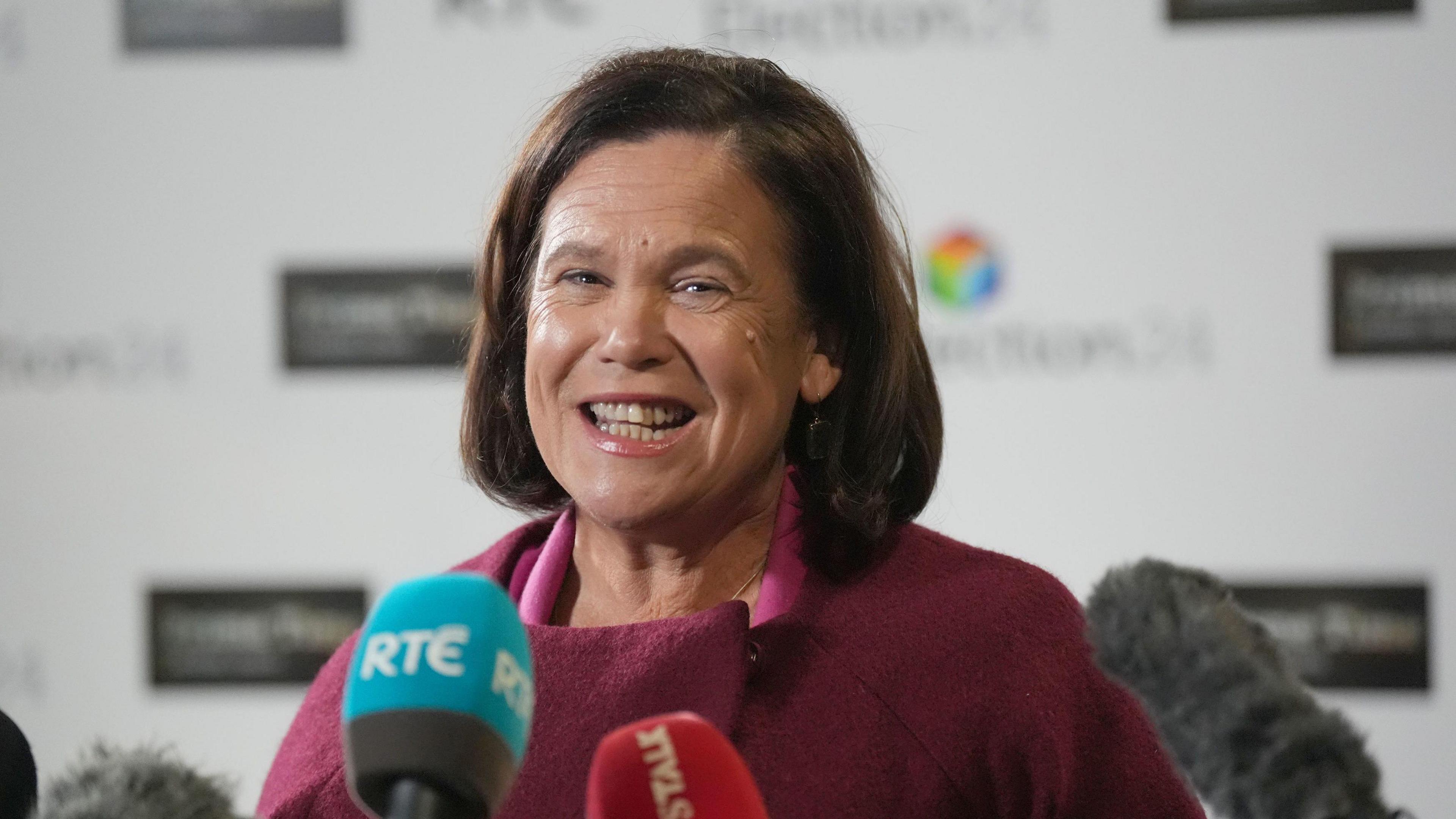Could 'viral' moments decide the Irish election?

There were no knockout blows during a leader's debate on Tuesday
- Published
“Events, dear boy, events” was how former British Prime Minister, Harold Macmillan, characterised the greatest risk politicians might face.
Today, it might be styled differently and reduced to a single word - ‘viral’.
The Fine Gael leader, Simon Harris, has certainly been at the cutting edge of a political event going viral on social media in the last week of this election campaign.
An excruciating encounter with a care worker while canvassing in County Cork last weekend was viewed millions of times across social media platforms.
It had parallels with former British Prime Minister, Gordon Brown, and his uncomfortable encounter with ‘Mrs Duffy’ during a British election campaign 14 years ago.
An unplanned interaction with a voter followed by frenetic party attempts to save face.
That’s what Harris and his party have had to do during the final week of this campaign.
And, in his first campaign as leader, he is getting plenty of practice trying to put out election fires.
'Hop or a flop'

A predicted hop in popularity for Simon Harris has rapidly been turning into something resembling a flop
A day after the campaign began three weeks ago, Ryanair chief executive Michael O’Leary made controversial comments about teachers while he was attending a Fine Gael election event.
Then, the following week, two court cases from recent years, involving a Fine Gael general election candidate who was found liable for assault, emerged as an issue in the campaign.
So, from a strong position at the beginning of the election, the Fine Gael campaign has wobbled substantially resulting in faltering opinion poll results.
The party began the campaign buoyed by the prospect of the so-called ‘Harris Hop’ - a jump in popularity after the election of Harris as leader and Taoiseach (Irish Prime Minister) earlier this year.
During the past week, commentators have been musing over how the ‘hop’ has rapidly been turning into something resembling a ‘flop’.
That’s now a serious challenge for Fine Gael.
The party has been running its campaign under a “new energy” slogan, but observers have been noting how some of that energy has been rapidly ebbing away.

Micheál Martin was taoiseach for the first two and a half years of the outgoing government
The two other big parties, Fianna Fáil - one of Fine Gael’s outgoing coalition partners - and the main opposition party, Sinn Féin, have also come under scrutiny in this campaign.
But unlike Fine Gael, they have so far managed to avoid any big negative viral moments.
The importance of that can’t be overstated in a world where a viral moment has the potential to make or break, or at least damage, electoral prospects.
Despite its high-profile stumbles throughout this election campaign, Fine Gael is still very much in the mix to come out on top.
But if the collateral damage bites on election day, it could lose vital seats the party was banking on just three weeks ago.

Mary Lou McDonald's popularity has fallen since the last Irish election
Fianna Fáil, under the leadership of the outgoing Tánaiste Micheál Martin, has had what's being referred to as a steady campaign, no big breakthroughs but also no big gaffes.
Sinn Féin came into this election off the back of a series of controversies on both sides of the Irish border, but these events have not become particularly significant issues in this election campaign.
This has allowed Sinn Féin to focus on its policy positions around key issues such as its proposed solutions to the country's housing crisis.
After a torrid series of opinion poll results over the past year, the party's polling position has recovered marginally during the election campaign.
All these issues provided the backdrop to the final TV debate of the campaign between the three leaders.
No knockout blows
No knockout blows were delivered in Tuesday's debate on Irish national broadcaster RTÉ but none of the three leaders went viral for the wrong reasons.
While independent candidates and the smaller parties are all pushing hard for Dáil (Irish parliament) seats, the three big parties are already positioning themselves to lead the next government.
Fianna Fáil and Fine Gael have not ruled out going back into government with each other, but both have ruled out sharing power with Sinn Féin.
That means Sinn Féin will have to find another way, with smaller parties or like-minded independents, if it's to get into government for the first time.
Many Irish voters do not make up their minds until the final days of the campaign, so the race for seats will be fascinating over the coming days.